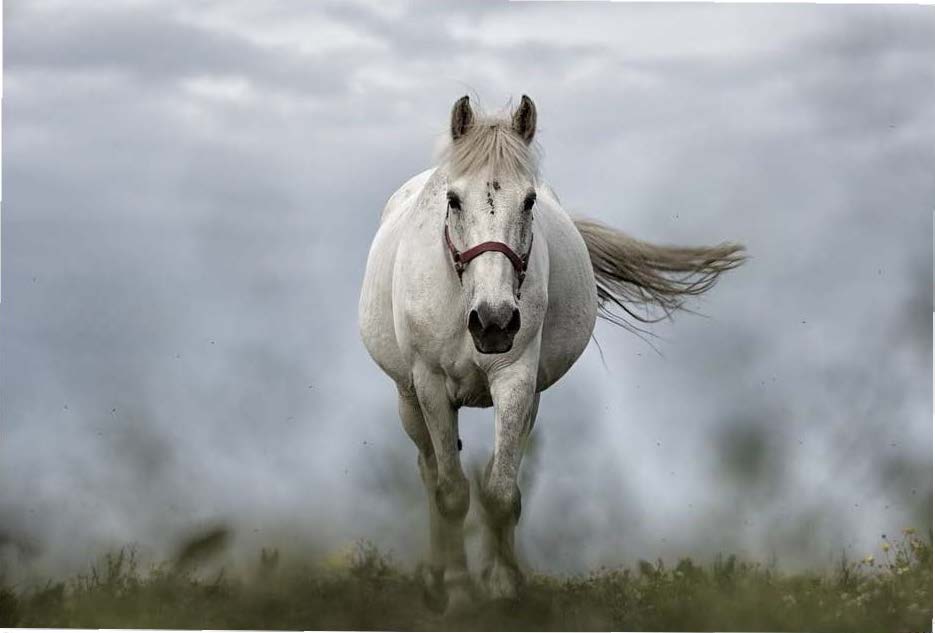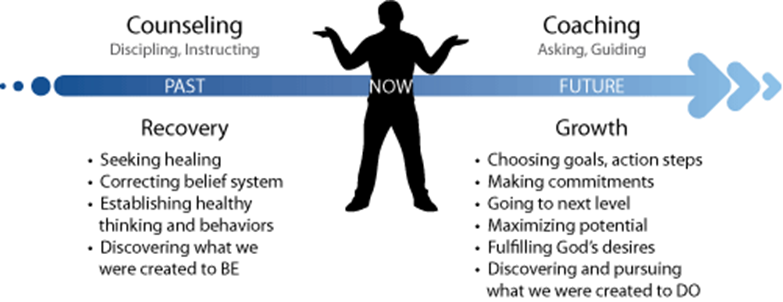By Blair McKissock, MSEd, RYT
Within the industry of equine-assisted learning (EAL) and therapy there is a great debate among professionals; what is the difference between learning and therapy? Having been a professional in experiential education for over 20 years, this was never an issue, because each experience was therapeutic regardless of who was leading it, and we were trained how to process an experience without being a therapist. For us there was a lane that we stayed in. We weren’t therapists, but we knew how to keep the conversation going in the context of experiential learning. More and more there is a growing gray area between the two, especially between coaching and therapy. Those who facilitate equine-assisted psychotherapy or counseling are licensed and credentialed mental health professionals, according to the state. Those that fall into the learning side of the gray middle area are usually coaches, educators, instructors, etc. We recreation therapists fall somewhere in the middle. If you are interested in getting into equine-assisted learning and therapy as a career, or as a client, it is important to know the difference.
“The Scope of Practice describes the procedures, actions, and processes that a healthcare practitioner is permitted to undertake, in keeping with the terms of their professional license.”
Within any profession, there is a scope of work, or scope of practice that is defined by their competencies, and by any applicable governing organizations, and in some instances the federal government. It is the job of the facilitator to operate within the scope of their work, and do their best not to cross the lines while facilitating groups and individuals. Anyone can be trained to facilitate an EAL session focusing on basic competencies within the domains of horse knowledge and experiential education. This represents a facilitator level of practice, and would include working as a co-facilitator, equine specialist, or lead facilitator for a learning based group with basic goals. Only those with training and credentialing as a mental health professional can offer “therapy.” For example, a professional trained and licensed as an educator could not be the lead facilitator in a mental health session. This would be out of the scope of their work. A licensed therapist would be the lead in a psychotherapy session.
The difference between coaching and therapy
The coaching process differs from counseling in that counseling focuses on healing from past trauma, and coaching focuses on the future, through goal-setting and accountability. In the process of change, the horse can be the companion, and even the guide. However, it can be helpful to have a coach serve as the navigator or interpreter. Coaches can often fill that role. You are the driver in the process of change, but just as a horse asks questions during interaction, such as, “Are you going to be the leader?” a coach can help ask that one question that reveals a new personal insight that can be the key to reaching your personal goals. A coach is not a therapist. They don’t process past trauma or past emotions. They do, however, help a client look to the future.
Let’s take a closer look at how coaching and horse interaction can be a life-changing combination. Of course, clients can still have releases during a session. It is critical that a coach has the necessary skills to keep that client safe, knows their own emotional competencies, and has the tools to keep the session in the learning mode.
Therapy, on the other hand, looks much different. A therapist, first of all, is someone who has received education, then training and supervision, takes a board exam, and is then licensed in their state as a mental health professional. There are several avenues the professional can take to licensure. They are: licensed clinical social worker, licensed practicing counselor, mental health counselor, marriage and family therapist, clinical psychologist, or an addictions counselor. A recreation therapist falls into the gray area in that they are qualified to lead mental health services including group therapy inside a clinical setting yet cannot go into private practice. In some states they are licensed. Only someone credentialed as a mental health professional can legally offer mental health services. In their work, they tend to focus on processing past trauma, or working through a chronic mental health condition. Therapists are more flexible, in that they can move into more coaching-based methodologies, but it all depends on what the client’s goals are as to the qualifications necessary for the facilitator.
It is very easy to cross the line from learning into therapy, and in some cases that can be OK, if the facilitator is a therapist. However, if the purpose of the session is a learning or coaching goal, and the facilitator is not a licensed mental health professional, they have to stay within the scope of their work, for the safety of everyone involved.
In the end, it is the ethical responsibility of both the consumer and the facilitator to do their due diligence. For the consumer, it is about doing their homework when investigating a potential therapist, coach, or horse professional for equine-assisted services. For the professional it is about knowing their professional limits, and staying in their lane. If they don’t have the required competencies to meet the needs of a potential client, then they need to bring in a partner who does have those competencies, or seek out additional training. There are many certifications out that train people to facilitate equine-assisted learning and therapy, and there is a great disparity between the good ones and the not so good ones. In the end, professionals also need to do their homework before taking on the amazing responsibility of facilitating the healing relationship between humans and horses.
Blair McKissock, MSEd, RYT is a speaker and author on experiential and nature-based learning. You can learn more about coaching, OmHorse mounted yoga sessions, and upcoming equine-assisted trainings at: stridestosuccess.org.
 Conscious Community Magazine Dedicated to Elevating Consciousness
Conscious Community Magazine Dedicated to Elevating Consciousness






